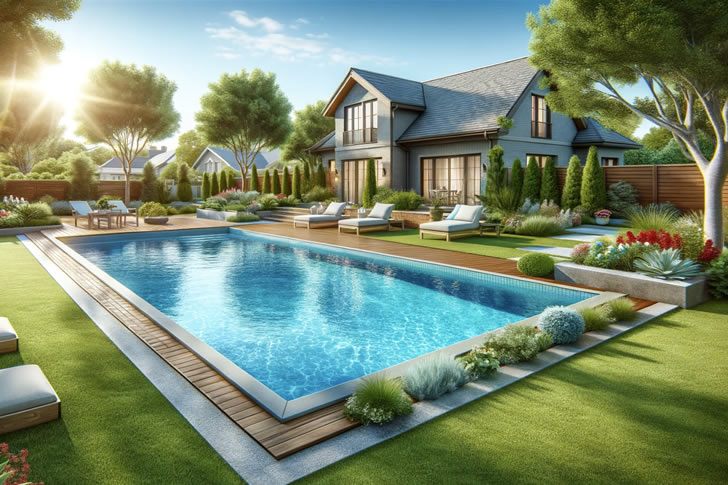How to Get a Cheap Swimming Pool: A Complete Guide
Owning a swimming pool is a dream for many, providing a perfect way to relax, entertain, and stay fit. However, the cost of installing and maintaining a pool can be prohibitive. This guide explores practical ways to own a swimming pool without breaking the bank, offering useful tips and insights into the costs involved and how to minimize them.

Understanding Pool Types and Costs
The first step to getting an affordable swimming pool is understanding the different types of pools available and their associated costs. The three main types of pools are in-ground, above-ground, and inflatable pools.
- In-ground Pools: These are the most expensive option, with costs typically ranging from $35,000 to $65,000. The price varies based on size, materials, and additional features like diving boards or waterfalls.
- Above-ground Pools: These are less expensive, with average costs between $1,000 and $8,000. They are easier to install and can be dismantled and moved if necessary.
- Inflatable Pools: The cheapest option, inflatable pools can cost as little as $100 to $800. They are portable and easy to set up, though less durable.
Ways to Save on Swimming Pools
- Choose the Right Type: Opting for an above-ground or inflatable pool can save thousands of dollars while still providing plenty of enjoyment.
- Do It Yourself: For those handy with tools, DIY installation can cut costs significantly. Many above-ground and inflatable pools come with detailed installation guides.
- Shop Off-Season: Buying a pool during the off-season can lead to significant savings, as retailers often offer discounts to clear inventory.
- Compare Prices and Negotiate: Get quotes from multiple suppliers and don’t hesitate to negotiate. Also, look for discontinued models or last year’s stock.
- Use Cost-Effective Materials: For in-ground pools, choosing vinyl or fiberglass over concrete can reduce the cost while still ensuring longevity and ease of maintenance.
- Maintain Your Pool Regularly: Proper maintenance can prevent costly repairs and prolong the life of the pool. Regular cleaning and monitoring of the chemical balance are essential.
Additional Cost Considerations
- Running Costs: Energy for heating the pool, water to fill it, and chemicals for cleaning are ongoing costs that need consideration. Solar covers and efficient heaters can help reduce these expenses.
- Permits and Insurance: Depending on the location, you may need a building permit, and your home insurance premium may increase. Check local regulations and consult your insurance provider.
- Landscaping and Accessories: Factor in the cost of landscaping around the pool and accessories like ladders, covers, or pool furniture.
Conclusion
While a swimming pool is a significant investment, it’s possible to own one without spending a fortune. By choosing the right type of pool, considering all associated costs, and employing smart shopping strategies, you can enjoy the benefits of a pool at a fraction of the cost.







Recent Comments